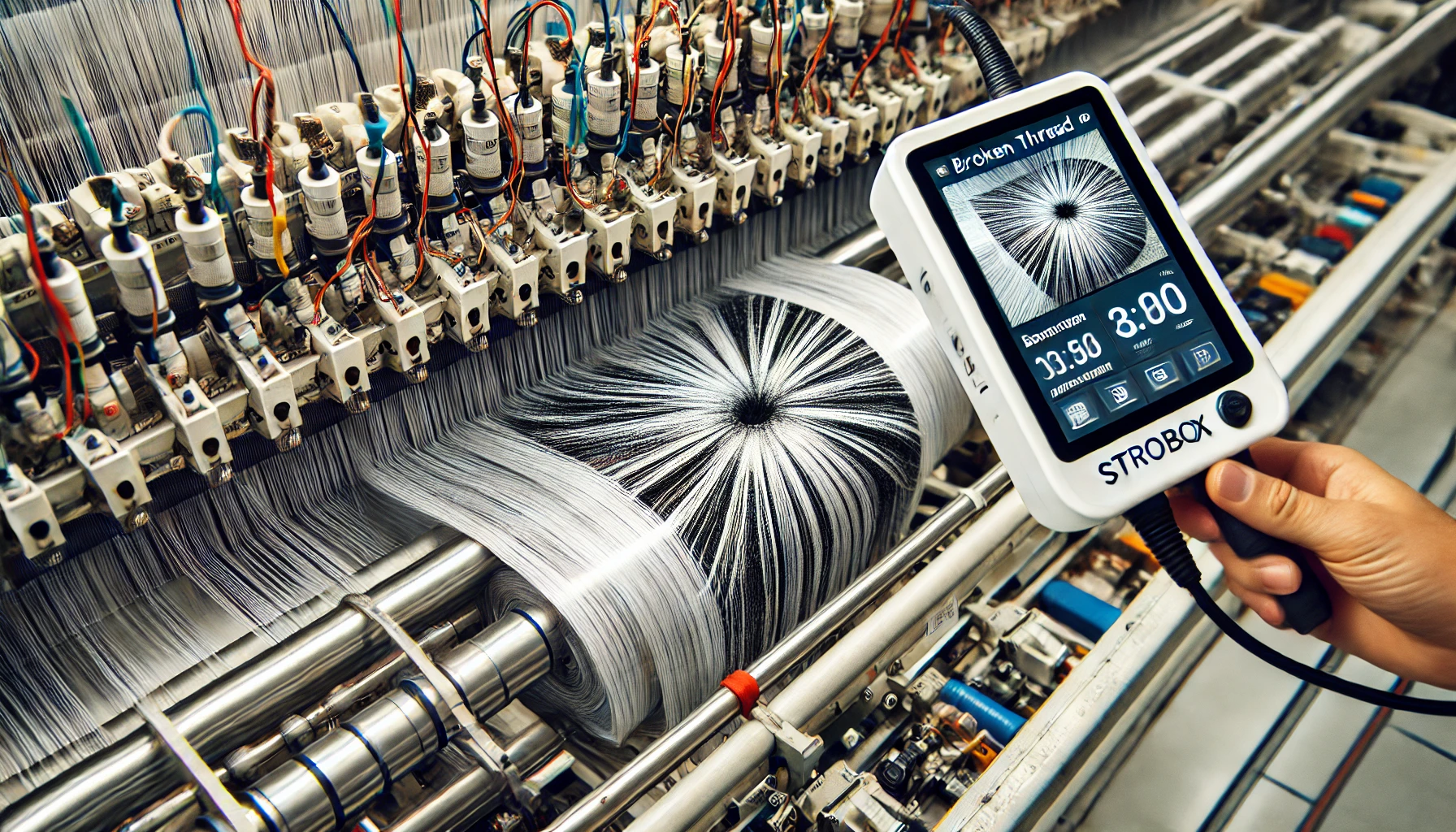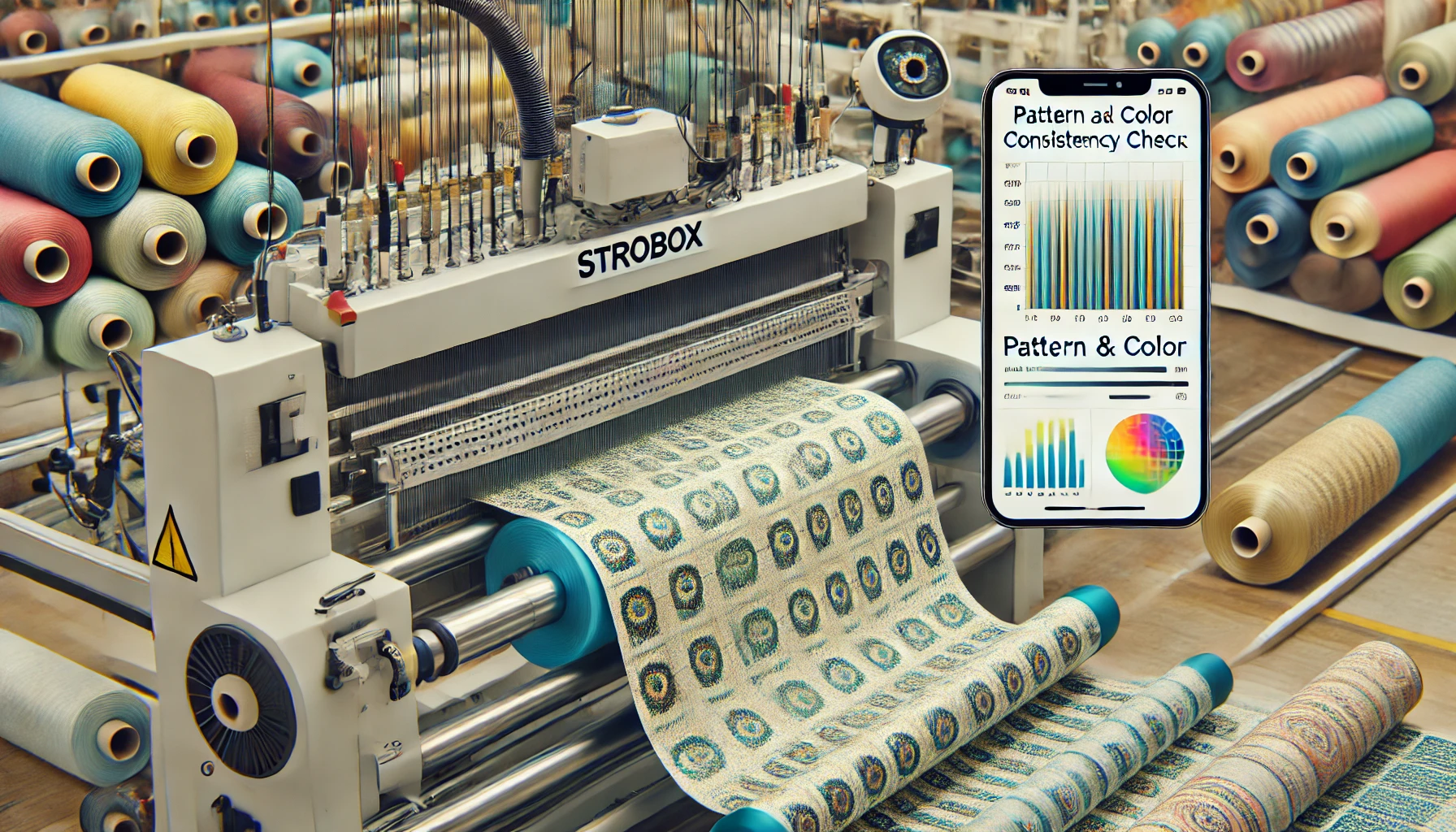
01
High-Speed Production
Textile weaving machines operate at high speeds, requiring rapid and precise inspections.
02
Defect Detection
Identifying weaving defects such as broken threads, uneven patterns, and color inconsistencies.
03
Consistency and Quality
Ensuring each roll of fabric meets strict quality standards.
04
Efficiency Requirements
Reducing downtime and maintaining high production speeds.
StroboX Solution
Key Features and Integration Potential
- Automated Speed Detection: Measures weaving machine speed and adjusts the strobe effect.
- High-Resolution Imaging: Captures detailed images of woven fabrics.
- AI-Powered Analysis: Compares images to standard quality benchmarks to identify defects.
- Instant Alerts: Provides immediate notifications for detected defects.
- Integration with Manufacturing Systems: Integrates with existing textile manufacturing control systems for streamlined workflow.
Usecases

Feature: High-Resolution Imaging
Benefit: Detects broken threads in real-time, ensuring high-quality fabric production.
Feature: AI-Powered Analysis
Benefit: Ensures consistent pattern and color quality, enhancing the visual appeal and reliability of woven fabrics.

Potential Benefits
01
Increased Efficiency
Automates the inspection process, significantly reducing time and labor costs.
02
Enhanced Accuracy
Provides precise and consistent quality checks, minimizing the risk of fabric defects.
03
Cost Savings
Reduces the need for extensive manual inspections and rework.
04
Improved Quality
Ensures high standards of quality across all woven fabrics, enhancing product reliability and marketability.
Challenges and Considerations
- Technical Complexity: Adapting the system to handle various fabric materials and weaving designs.
- Quality Assurance: Maintaining high standards in automated defect detection.
- Integration Challenges: Integrating with existing textile manufacturing systems and workflows.